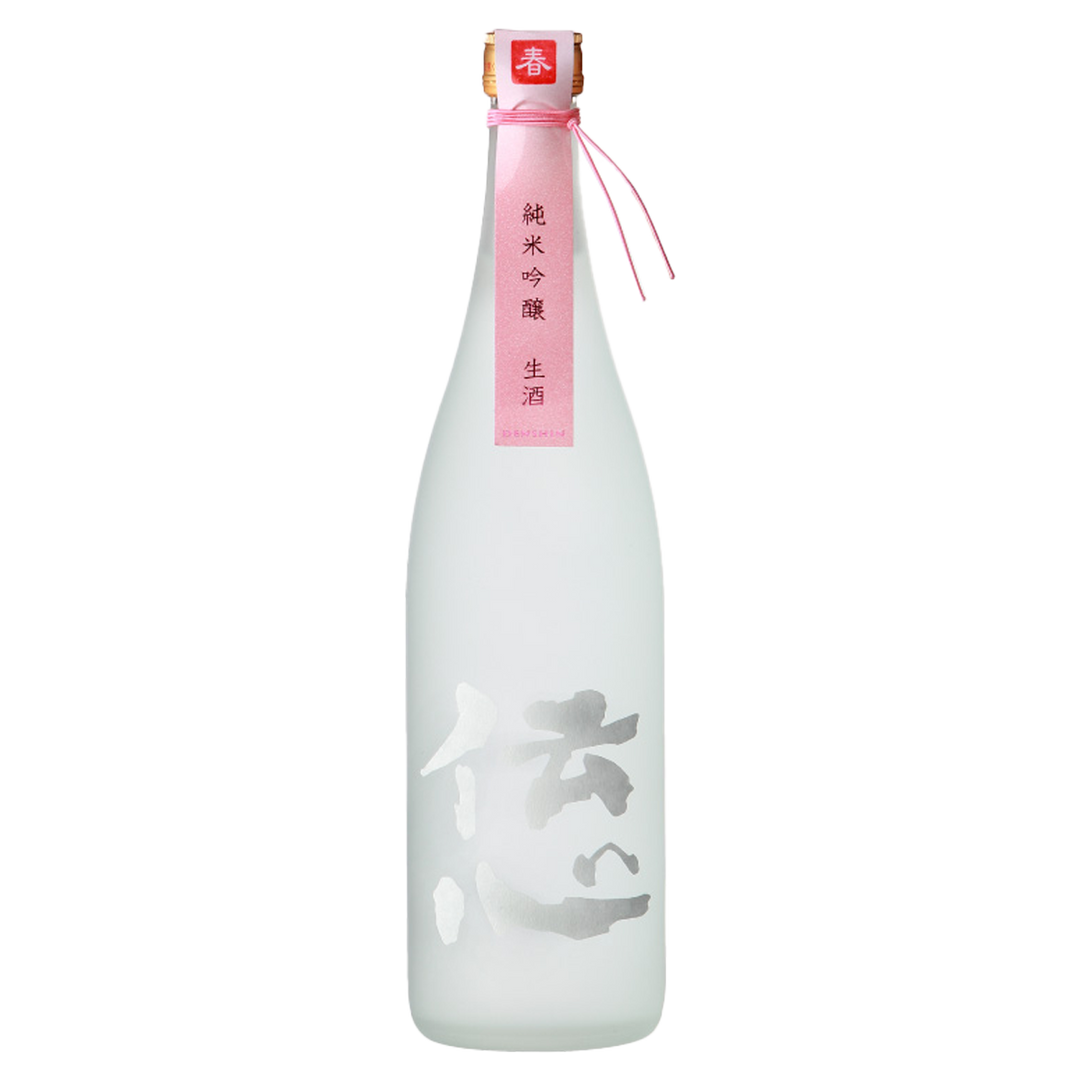
Denshin Junmai Ginjo Namagenshu "Haru" 2025
- In stock, ready to ship
Soft sweetness, gentle texture, this is no aggressive nama. Juicy strawberry, rainier cherry, wisteria, honeysuckle and violet, on a soft, round, ricey canvas. Fresh and simply delightful.
Sake is normally pasteurized twice, once before storage and once before bottling, but this sake is bottled and shipped without pasteurization. This means it matures and its flavors become heavier faster than a normal sake, so we recommend keeping it refrigerated.
Ippongi Kubohonten, 一本義久保本店
Established 1902
Location: Katsuyama, Fukui
Grade: Junmai Ginjo Muroka Nama Genshu
Rice: Yamadanishiki & Gohyakumangoku (local)
Polishing: 55%
Yeast: proprietary
Water: soft
SMV: 0
ABV: 16.5%
Ippongi Kubohonten is based in Fukui prefecture, and it might be my favorite brewery for seasonal releases. Throughout the year, their interpretations of seasonal sake are creative, original, capture the essence of the seasonal mood, and are an excellent value for money. Fukui, in particular the Oku- Echigen agricultural region, is a pristine environment fed by a combination of alps runoff, heavy winter snow, and the proximity of the Japan Sea. Ippongi is Fukui’s #1 brewery, and Denshin is their premium label. Because of the abundance of local seafood, seafood pairings are implicit. For the abundance of agriculture, local rice is implicit as well.
From the brewer:
Its freshness marks it as a seasonal product from the first sip, and unlike the versatile Yuki (available year round) it does require some care when pairing. Serve Haru with assertive foods, such as dishes with intense flavor, oiliness or strong seasonings. It pairs better with meat than fish: for example, it goes particularly well with beef tongue or grilled chicken. When pairing with sashimi, it goes better with blue-black skinned fish such as mackerel than with a normal sashimi selection. For vegetables, try Korean vegetable namul dressed with sesame oil. It also goes well with strong seasonings such as sansho leaf or yuzu kosho.

